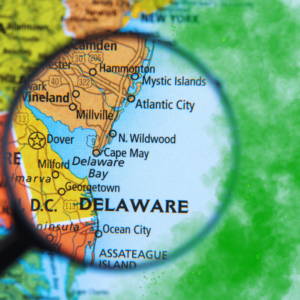Costa Rica Court Rejects Recreational Cannabis Referendum

Costa Rica’s Constitutional Court Blocks Cannabis Legalization Referendum
On Wednesday, Costa Rica’s Constitutional Court, Sala IV, delivered a significant ruling against a proposed referendum that would have allowed the public to vote on the legalization of adult-use cannabis. The court declared that the legislation behind the referendum, known as Bill No. 23,383, violates several international treaties, making it unconstitutional under Costa Rican law. This decision marks a major setback for advocates of cannabis reform in the country, who had hoped the referendum would pave the way for the legalization of recreational marijuana.
The Constitutional Court’s Ruling
In its ruling, Costa Rica’s Constitutional Court emphasized that the proposed cannabis legislation, which aimed to regulate and control cannabis for recreational use, was incompatible with the country’s international obligations. Specifically, the court cited the violation of several international treaties, including the Single Convention on Narcotic Drugs of 1961, the Vienna Convention on Psychotropic Substances of 1971, and the United Nations Convention Against Illicit Traffic in Narcotic Drugs and Psychotropic Substances of 1988. These treaties, Costa Rica is bound to uphold, prohibit the legalization of recreational cannabis.
The court’s ruling asserted that Bill No. 23,383, also known as the Law on the Control and Regulation of Cannabis for Recreational Use, could not proceed without violating Article 7 of Costa Rica’s Political Constitution. This article holds that international treaties take precedence over domestic law. Since the proposed bill directly contradicted the obligations under these international drug control agreements, the court concluded that the bill could neither pass through a referendum nor be approved by the legislative assembly without first addressing these treaty conflicts.
In its decision, the court highlighted the constitutional principle that international treaties are superior to national laws. This principle means that even if a proposed law garners local support, it cannot be enacted if it contradicts international legal commitments.
The Proposed Cannabis Legislation
The bill in question, Bill No. 23,383, was designed to legalize and regulate cannabis use for recreational purposes in Costa Rica. Its aim was to create a legal framework for the cultivation, distribution, and sale of cannabis to adults. The proposal was widely seen as a response to growing public interest in the regulation of marijuana and the broader global trend toward cannabis legalization.
Erick González Camacho, the main proponent behind the bill, was responsible for collecting the signatures needed to trigger the referendum. His goal was to allow Costa Ricans to vote directly on the issue of cannabis legalization. González Camacho and other supporters argued that legalizing cannabis could generate significant economic benefits, including tax revenue, job creation, and a reduction in crime related to the illicit cannabis market.
The bill outlined a legal structure for cannabis cultivation and distribution, aiming to reduce the influence of criminal networks that profit from illegal marijuana trade. Proponents of the measure argued that it would provide a safer and more regulated alternative for consumers, while also allowing the government to redirect funds toward important public initiatives, including healthcare and education.
A Setback for Cannabis Reform in Costa Rica
Costa Rica’s Constitutional Court’s decision represents a major setback for cannabis reform advocates in the country. The ruling effectively prevents the proposed cannabis legalization bill from advancing through either a referendum or legislative approval unless the international treaty conflicts are resolved. The decision underscores the powerful influence of international drug control agreements on national cannabis policy.
Despite this ruling, the legal battle for cannabis reform in Costa Rica may not be over. Advocates for marijuana legalization have expressed frustration with the court’s decision, arguing that international treaties should not be used as a barrier to addressing domestic issues like crime, health, and economic development. They have also pointed to the growing global momentum toward cannabis decriminalization and legalization, with numerous countries and U.S. states opting to regulate marijuana for recreational use.
However, the court’s ruling underscores the complexities of international law in shaping drug policy at the national level. Costa Rica, like many other countries, is caught between its desire to address local social issues and the legal obligations it has to uphold international drug control agreements.
President Rodrigo Chaves’ Vision for Cannabis Legalization
The push for cannabis legalization in Costa Rica gained significant momentum in recent years, with President Rodrigo Chaves publicly endorsing the idea of legalizing marijuana for recreational use. Two years ago, President Chaves announced a plan to regulate cannabis, citing the potential benefits to both public safety and the economy.
In a statement supporting cannabis legalization, President Chaves noted that legalizing marijuana would provide consumers with a safer alternative to illicit sources while simultaneously depriving criminal networks of a significant source of income. He also emphasized the potential economic benefits of cannabis regulation, including the creation of new jobs, new business opportunities, and increased tax revenue that could be reinvested into public services like healthcare and education.
While the President’s support for cannabis legalization has garnered attention, the recent ruling from the Constitutional Court suggests that his plan may face significant hurdles. Although Costa Rica’s legal framework may allow the president and the legislature to propose new laws, international treaties remain a powerful obstacle that could prevent meaningful cannabis reform without renegotiating or withdrawing from certain international drug control conventions.
International Treaties and Their Influence on Costa Rican Law
Costa Rica’s reliance on international treaties is not unique; many countries face similar challenges when attempting to implement policies that conflict with international agreements. The country is a signatory to several key international treaties that prohibit the legalization of recreational drugs, including cannabis. These treaties are part of a broader international effort to control the production, distribution, and consumption of narcotic substances.
For Costa Rica, these treaties present a complex legal challenge. On one hand, the country’s domestic laws, including its political constitution, require adherence to international treaties. On the other hand, the growing movement to legalize cannabis for medical and recreational use raises questions about whether international drug control frameworks need to be reformed to reflect current public health and safety priorities.
For countries like Costa Rica, the challenge lies in navigating these conflicting obligations—between the desire to protect public health, reduce crime, and boost economic growth, and the need to fulfill international commitments that may no longer align with public opinion or domestic needs.
The Path Forward for Cannabis Reform
While the ruling may seem like a setback for those advocating for cannabis reform in Costa Rica, it does not necessarily mark the end of the push for legalization. Advocates may now focus their efforts on lobbying for changes to the international treaties themselves or attempting to negotiate exemptions for Costa Rica. They may also seek to advance the issue through public debate, advocacy campaigns, and continued engagement with lawmakers.
President Chaves and other proponents of cannabis legalization may also attempt to renegotiate Costa Rica’s position on international drug treaties, following the example of other countries that have sought greater flexibility in their drug policies. The ongoing global debate surrounding cannabis legalization and decriminalization may provide an opportunity for Costa Rica to explore new pathways to reform.
For now, the Constitutional Court’s decision underscores the complexity of drug policy reform in a globalized world, where national priorities are often shaped by international agreements that were made decades ago.
Costa Rica’s Constitutional Court has placed a significant roadblock in the way of cannabis legalization by ruling against the proposed referendum on recreational cannabis. The court’s decision highlights the powerful role international treaties play in shaping national drug policies. While this ruling has disappointed reform advocates, it has also sparked a broader conversation about the need for change in global drug control frameworks. Moving forward, Costa Rica’s cannabis policy will likely depend on navigating these legal complexities while responding to the evolving needs and desires of its population.











